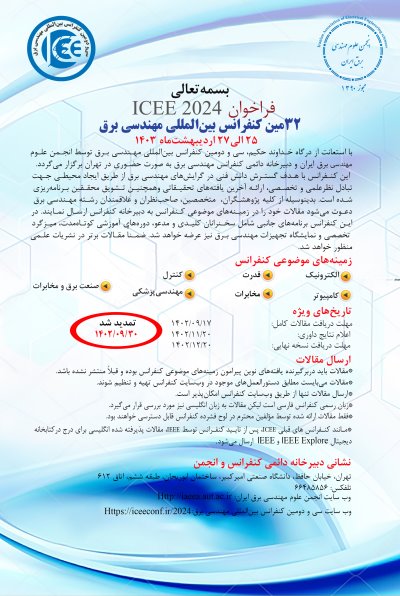0% Complete

نویسندگان :
کلمات کلیدی :
چکیده :
لیست مقالات بایگانی شده
Mohammad Soltani gol - Morteza Fattahi - Hamid Soltanian zadeh - Samd Sheikhaei
Marzie Norouzi Dehnashi - Mahmoud Momtazpour - Seyyed Ahmad Javadi
Maryam Sharifinia - Farzaneh Ghayour Baghbani
Erfan Mortazavi - Hanieh Mohammadi - Bahram Tarvirdizadeh - Khalil Alipour - Mohammad Ghamari
Elham Bahrampour - Mohammad Tavazoei
ایمان علیبیگی - محمود تابنده - سعید باقری شورکی - رامین رجایی
Mohammad Tabarsi Sochelmaei - Arash Yazdanpanah Goharrizi
Reza Ashrafi Mohabadi - Sajjad Zohrevand - Mohammad Amin Chaychizadeh - Nader Komjani
Alireza Jaafari - Sadegh Mohsenzade - Ali Asghar Razi-Kazemi




